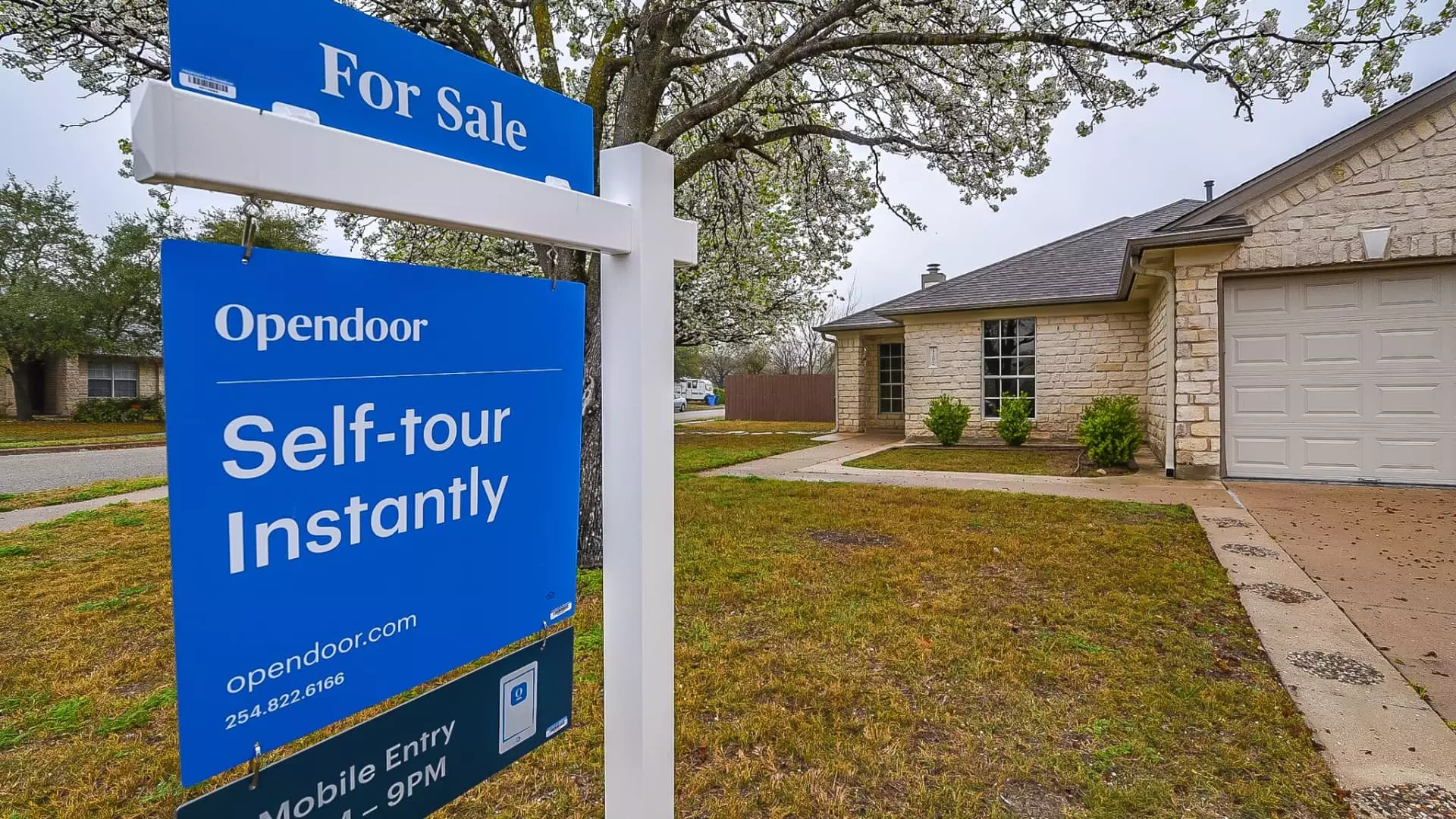Opendoor’s recent stock surge has sparked an almost irrational wave of investor enthusiasm—shares skyrocketed nearly fivefold since July, defying the company’s lackluster financial performance and a bleak market environment. This rally, driven largely by speculative bets and high-profile hedge fund endorsements, masks the fundamental challenges that threaten the company’s viability. Beneath the surface, Opendoor remains a marketplace entangled in cyclical housing woes, plagued by rising mortgage rates, declining demand, and profit erosions. The recent enthusiasm appears more like a mirage than a sustainable turnaround, as the company’s core business struggles to recover from the historic lows seen earlier this year.
Fundamental Flaws and Management’s Mixed Messaging
The CEO’s cautious optimism and gratitude seem dissonant with the company’s actual financial health. A record stock surge amid declining revenues and mounting losses raises questions about investor judgment and the sustainability of such enthusiasm. While Wheeler emphasized strategic shifts toward a less capital-intensive referral model, the market remains unconvinced by promises of transformation. The second-quarter revenue barely nudged up by 4%, and projections for the third quarter point to a precipitous 36% decline from last year. This dissonance indicates a disconnect between the narrative spun by management and the harsh financial reality they face.
The company’s decision to cancel the proposed reverse split—a desperate measure that could have artificially inflated share prices—highlights the precariousness of its stock value. Previously, Opendoor’s valuation had been battered, sinking as low as $0.51 per share. Despite external appearances of a rally, the underlying business is still hemorrhaging cash, with a narrowed net loss that still remains significant and revenues that are not keeping pace with operational costs. This raises serious doubts about the sustainability of short-term gains.
The Illusion of a Market Revival and Questionable Optimism
The rally’s primary fuel seems to be speculative bets, such as hedge fund manager Eric Jackson’s bullish outlook, projecting a potential stock price of $82. Such optimism appears detached from reality, considering current valuation and operational challenges. Jackson’s belief that a return to revenue growth and market share expansion will eventually lead to profitability seems overly optimistic, especially given the wider economic backdrop of persistent high mortgage rates suppressing buyer demand.
Opendoor’s effort to pivot toward a less capital-intensive referral model is, at best, a cautious acknowledgement of current failures. The shift indicates management’s recognition that their previous iBuying model, heavily dependent on a thriving housing market, may no longer be viable in its current form. However, strategic rebranding cannot compensate for falling revenues, shrinking home acquisitions, and deteriorating market conditions. It’s a begrudging acknowledgment that their business model, up to now, has been fundamentally flawed in a rising-rate environment.
The Broader Implications of a Fragile Rise
This unexpected rise illustrates a classic case of market speculation distorting investor perceptions. It draws into focus how short-term hype can sometimes eclipse underlying fundamentals and mislead even the most seasoned investors. For a company like Opendoor, which remains deeply intertwined with the health of the housing cycle, these gains are fragile and likely to be short-lived unless there is a genuine, sustainable turnaround—something that current hard data does not support.
The broader message here is that optimism driven solely by external narratives, especially in a center-right liberal stance advocating responsible capitalism, must be tempered with skepticism. Investing in transformations and strategic pivots requires more than just promises; it demands tangible, consistent results. Until then, Opendoor’s recent rally is more a testament to market momentum and hope—not actual recovery. The underlying issues—escalating losses, declining revenues, and a deteriorating housing market—remain unresolved, casting a long shadow over the company’s future prospects.

